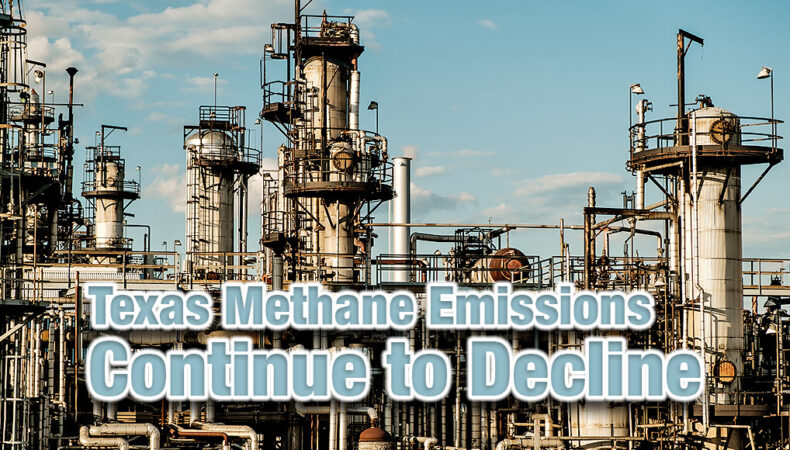Methane emissions in the state of Texas have marked a notable decline, despite the near-record production of oil and gas. This significant data point goes against the general presumption that a surge in production would generate more emissions. The surprising turnaround of events was reported in a study by Texans for Natural Gas.
The groundbreaking study showed data contrary to decades-old beliefs about methane’s correlation with the production side of the energy industry. The Texas methane emissions have dropped by 47 % since 2011 even while oil and gas production in the state nearly doubled. This goes against the conventional understanding that increased production should inevitably lead to increased emissions.
Methane, a potent greenhouse gas, is primarily produced from human activities, especially the extraction and processing of coal, oil, and gas. Its rising levels are a significant concern because methane traps heat 25 times more effectively than carbon dioxide. Given this, the monitoring efforts and subsequent reductions in Texas’ methane emissions are a noteworthy achievement.
The reductions in methane emissions reflect the efforts of oil and gas companies that have implemented technologies to limit methane leaks from their operations. These proactive measures have played a substantial role in managing and decreasing the methane emissions, further demonstrating the potential effectiveness of private sector-led efforts to combat greenhouse gas emissions.
The key question now is whether this trend can be replicated on a broader scale beyond Texas. These findings echo those of a separate study by University Corporation for Atmospheric Research (UCAR) suggesting that methane can be reduced significantly through implementing specific strategies across the energy sector. It stands to reason, then, that an industry-wide push in this direction could yield significant results across the United States and beyond.
To conclude, the case of Texas demonstrates that the challenges posed by methane emissions can be addressed impressively without dampening the robust growth of the energy industry. Hence, it sets a precedent that increased productivity doesn’t necessarily need to result in increased environmental impact. The evidence is clear: greenhouse gas emissions and economic growth are not required to move in lockstep. This story, however, remains to be firmly etched onto the national and global carbon-cutting agendas as a promising example to follow.
Last modified: April 6, 2025



